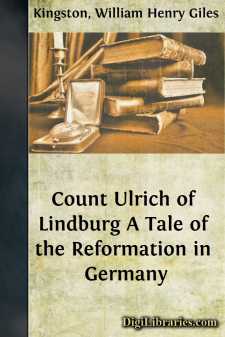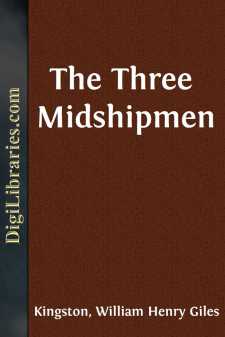Categories
- Antiques & Collectibles 13
- Architecture 36
- Art 48
- Bibles 22
- Biography & Autobiography 813
- Body, Mind & Spirit 142
- Business & Economics 28
- Children's Books 15
- Children's Fiction 12
- Computers 4
- Cooking 94
- Crafts & Hobbies 4
- Drama 346
- Education 46
- Family & Relationships 57
- Fiction 11828
- Games 19
- Gardening 17
- Health & Fitness 34
- History 1377
- House & Home 1
- Humor 147
- Juvenile Fiction 1873
- Juvenile Nonfiction 202
- Language Arts & Disciplines 88
- Law 16
- Literary Collections 686
- Literary Criticism 179
- Mathematics 13
- Medical 41
- Music 40
- Nature 179
- Non-Classifiable 1768
- Performing Arts 7
- Periodicals 1453
- Philosophy 64
- Photography 2
- Poetry 896
- Political Science 203
- Psychology 42
- Reference 154
- Religion 513
- Science 126
- Self-Help 84
- Social Science 81
- Sports & Recreation 34
- Study Aids 3
- Technology & Engineering 59
- Transportation 23
- Travel 463
- True Crime 29
Count Ulrich of Lindburg A Tale of the Reformation in Germany
Categories:
Description:
Excerpt
Chapter One.
On the banks of the river Saal, in Merseburg, forming part of Saxony, at the time of which we speak, governed by the aged and excellent Elector Frederick, stood the Castle of Lindburg. It was one of those feudal piles of the Middle Ages, impregnable to the engines of ancient warfare, but which were destined to crumble before the iron shots with which cannon assailed them, as the system they represented was compelled to succumb to the light of that truth which the Gospel was then diffusing over the greater part of Europe.
Ulrich, Count von Lindburg, or the Knight of Lindburg, as he was often called, sat in a room in his Castle, with his arm resting on a table and a book before him, at which, however, his eyes seldom glanced; his looks were thoughtful and full of care. He had engaged in much hard fighting in his younger days, and now all he wished for was rest and quiet, though the state of the times gave him but little hope of enjoying them. In his own mind, too, he was troubled about many things. Four years before the time at which he is introduced to the reader, he had visited Worms, during the time the Diet, summoned by the Emperor Charles the Fifth, was sitting, and was among those who found their way into the great hall where the Emperor and the chief princes, bishops, and nobles of the land were sitting, when Dr Martin Luther, replied to the chancellor of Treves, the orator of the Diet, who demanded whether he would retract the opinions put forth in numerous books he had published and sermons he had preached.
“Since your most serene majesty and your high mightinesses require from me a clear, simple, and precise answer, I will give you one, and it is this: I cannot submit my fate either to the Pope or to the councils, because it is clear as the day that they have frequently erred and contradicted each other. Unless, therefore, I am convinced by the testimony of Scripture or by the clearest reasoning, unless I am persuaded by means of the passages I have quoted, and unless they thus render my conscience bound by the Word of God, I cannot and will not retract, for it is unsafe for a Christian to speak against his conscience.” And then, looking round on that assembly before which he stood, and which held his life in its hands, he said, “HERE I STAND, I CAN DO NO OTHER. MAY GOD HELP ME! AMEN!”
The assembly were thunderstruck. Many of the princes found it difficult to conceal their admiration; even the emperor exclaimed, “This monk speaks with an intrepid heart and unshaken courage.” Truly he did. This is the weakness of God, which is stronger than man. God had brought together these kings and these prelates publicly to confound their wisdom. These bold words had had also a deep effect on the Knight of Lindburg, and he kept meditating on them as he rode homeward towards the north. Could it, then, be possible that the lowly monk—the peasant’s son—should be right, and all those great persons, who wished to condemn him, wrong? Was that faith, in which he himself had been brought up, not the true one?...












